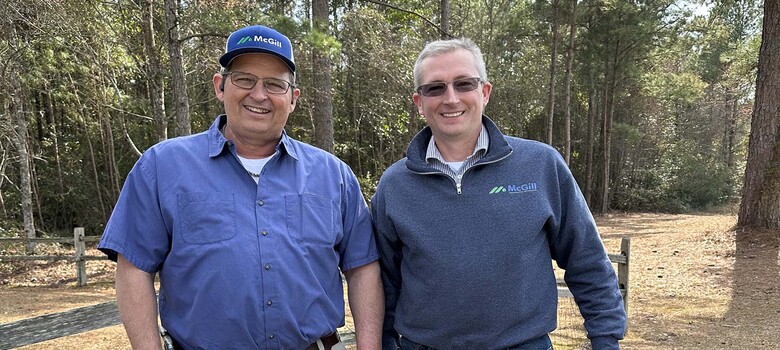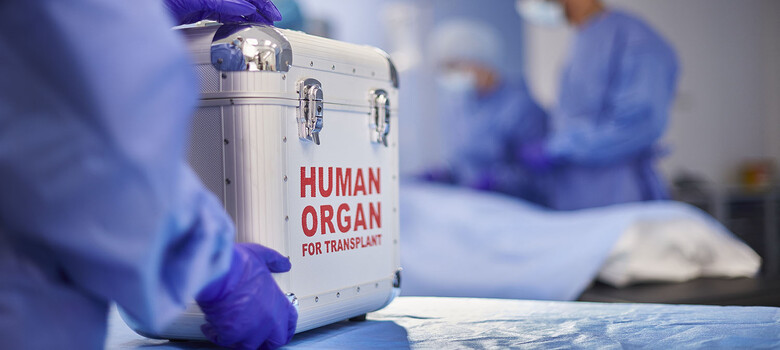Study Looks at APOLO1 and Kidney Disease in Black People
Duke Enrolling Patients in National APOLLO Study to Address Racial Inequity in Kidney Transplant

Black Americans experience kidney failure at four times the rate of other ethnic groups in the U.S., but until recently no one knew exactly why. Then in 2010, scientists discovered that some Black people have a version of a gene called APOL1 that may hold answers to this question. This gene difference appears to play a role in who suffers from kidney disease, the rate at which it progresses, and the long-term health of transplanted kidneys.
Here, Opeyemi A. Olabisi, MD, a kidney specialist at Duke Health and a national expert on the APOL1 gene, discusses the impacts of this finding and a national study called APOLLO, which is exploring the genetic difference and its implications for Black kidney transplant donors and recipients. Duke is one of 13 centers enrolling people in this study across the country.
Protective Version of APOL1 Harms Kidneys
Since identifying the APOL1 variant, scientists have learned that originally it evolved to protect Sub-Saharan West African people against African sleeping sickness. However, when two copies are inherited -- one from each parent -- the risk of kidney disease rises significantly. In fact, 15 to 20% of Black Americans who carry two copies of this gene version go on to develop kidney disease, and 40% of Black people who are on dialysis due to kidney failure also have two copies. “While we still must consider the impact of non-biological factors including socioeconomic factors and the lack of access to health care, these APOL1 gene variants are probably the most important biological determinants of racial kidney health disparity in the U.S.,” said Dr. Olabisi. It not only increases the likelihood of having significant kidney disease but also speeds progression to dialysis by 10 years on average.
APOLLO Study Seeks Answers About Kidney Transplant Outcomes
Although Black Americans have a disproportionate risk for kidney failure, they are less likely to be placed on the national kidney transplant waitlist than white Americans, Dr. Olabisi said. As a result, many Black people who need a transplant depend on kidneys donated by relatives and friends. But what happens when those kidneys come from a donor with two copies of the variant? That’s one question the APOLLO study seeks to answer.
A Better Way to Evaluate Donated Kidneys
APOLLO researchers also hope to influence the way in which donor kidneys are assessed. Historically, kidneys from Black donors score lower than those donated by people from other ethnic groups because it is assumed that they won’t last as long. “It doesn't sound nice, but this practice is informed by evidence,” Dr. Olabisi explained. “However, we now know this evidence is a generalization.” Approximately 13 to 15% of Black people in the U.S. have two copies of the APOL1 variant -- far from 100% -- and this does not guarantee that they will experience kidney failure. Knowing the precise effects of the gene version on long-term kidney health will help transplant teams more accurately determine the quality of donated kidneys and increase the pool of healthy donor organs. It could also improve kidney transplant outcomes for donors and recipients.
Participating in the APOLLO Study Could Help Many More People
If you are a Black American, Afro Caribbean, Hispanic Black, or African kidney donor or recipient, Dr. Olabisi encourages you to take part in the APOLLO study. It requires a simple blood and urine test, after which doctors track your kidney health for two to five years. Participation is relatively easy and could improve the lives of many people in your community. “The road to progress in science is not just paved by scientists. In fact, it's paved by community participation,” said Dr. Olabisi. Even if the research doesn't benefit you immediately, it will benefit your children, grandchildren, and community, he added.
Patients at transplant centers like Duke that are taking part in the study will learn more from their doctors. If you are not a transplant donor or recipient but want to know if you carry the APOL1 variants, free genetic testing is available through kidneycareandjustice.com.



